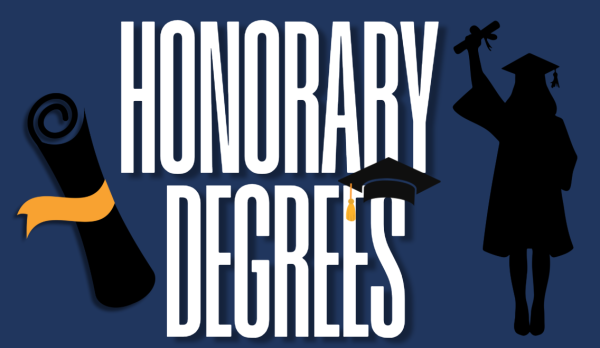Traditional Standardized Testing Must Be Re-evaluated
I remember the stress of college application season all too well. With Naviance as a favorite on my laptop homepage, I was constantly researching different schools. I had an extensive pro-con list written out in my notepad. I packed my schedule full with college tours in the month before my final decision, because of course I had decided to procrastinate the biggest financial decision of my life — one that I was destined to make at the ripe, wise age of 18. However, one of the most daunting parts of the process was the dreaded Common Application, affectionately known by most as the Common App.
However, this year high school seniors have been forced to navigate a completely new admissions process — with an entirely new set of struggles. Most students don’t have the option to visit their prospective college campuses. They can’t, as I so reasonably did, rely on the “feeling” you get when you walk on a campus and try to decide which will be the best substitute home for the next four years. They can’t see the students on campus or experience the wonder that is college dining. They can’t walk in a dorm room and picture themselves moving in. They can’t get embarrassed as their parents pepper the tour guides with questions. Unfortunately, these losses aren’t even the worst part.
While today’s seniors aren’t able to experience the more fun aspects of college decisions, they can’t even rely on the age-old application process. Plenty of students have been unable to find open testing centers to take the SAT or ACT — tests that are required by a majority of colleges’ application processes. Preparing for these tests is stressful in itself, but I can’t imagine the stress of not even being able to take these exams because of a global pandemic.
Therefore, it makes sense why many schools are temporarily making SAT and ACT scores an optional part of the application process. They consider that most students have struggled to find open testing sites, feel unsafe doing so or simply don’t have the time or money during such an unprecedented time. Among these schools, Fordham has recently made SAT and ACT scores an optional part of the application for the next two years because of complications due to the COVID-19 pandemic. However, the university admitted that they had been considering making the move to eliminate mandatory testing long before the pandemic. Thus, they will revisit the policy after two years to see if they will make optional testing permanent.
Fordham cited “racial and socioeconomic disparities” reinforced by standardized tests as their reasoning for potentially eliminating the tests altogether. This is most likely in reference to the troubling racial disparities evident in SAT and ACT scores. One analysis of SAT scores from 2017 used data from the College Board to show the large racial gaps (specifically the persistent Black-white gap) in the test’s math portion. When analyzed statistically, white SAT scores are normally distributed, with Asian scores near the top, and Black and Latinx scores toward the bottom of the distribution. These scores reflect an inherent problem within the testing system, especially considering how influential a student’s SAT score can be when it comes to their chance at being accepted into a college.
Fordham’s initiative to eliminate testing surely seems to be the logical next step. SAT and ACT scores are just one facet of a student’s academic profile, and the scores certainly reflect an inherent unfairness. Such large gaps among races almost certainly come from deeply rooted issues of inequality; certain races are not just naturally born better-equipped to take what is meant to be a “standardized” test. Ironically enough, these standardized tests don’t seem to be evaluating people of different backgrounds against the same standard. So, how realistic is it to just get rid of a major part of the application process?
For example, Fordham prides itself on a holistic approach to admissions, a tactic that many other colleges market themselves as utilizing. They claim to focus not just on test scores or GPA, but rather on the student as a whole, taking into account their interests and desires, the goals they have and the way they work towards them. This admissions process attempts to get a look at the student as a real person jumping off the pages of their application, as opposed to just a number — whether that be their test score or class rank.
In reality, though, testing is a big part of this holistic process. Considering Fordham’s application forsakes separate essays in favor of the standard Common App essay that almost all schools require, how can a student truly stand out without that infamous test score? I’m sure there are students out there who feel their essay is the strongest part of their application, or aren’t the most proud of their class rank or GPA, who are relieved to remove their standardized scores from the process. There are students who are banking on their test scores, or students who simply feel that their application is strongest when it includes all these factors. Of course, Fordham has only made the scores optional, and has not completely eliminated them from the application, but it’s difficult to see how an admissions committee could accurately compare and discuss profiles whose contents vary so significantly.
GPA and class rank are important, of course, but each student’s high school varies. Some students went to private schools while others attended public school. Some went to school with hundreds of other students; some had classes of only 50 or less. There is a reason these standardized tests were put in place: to attempt to eliminate these countless discrepancies. The problem that needs to be tackled is the SAT and ACT themselves. While it would be great if we could just get rid of these tests altogether, it would provide us with an entirely new set of issues. If we want to truly solve this academic dilemma, we need to dig deeper and find a way to make a test that truly evaluates a student’s academic vigor, not just get rid of the test and cite it as a lost cause.
Taylor Herzlich, FCRH ’23, is a journalism major from Mt Sinai, N.Y.

Taylor Herzlich is a senior at Fordham College at Rose Hill. She is majoring in journalism with a minor in English. Taylor started writing for the Ram...










































































































































































































